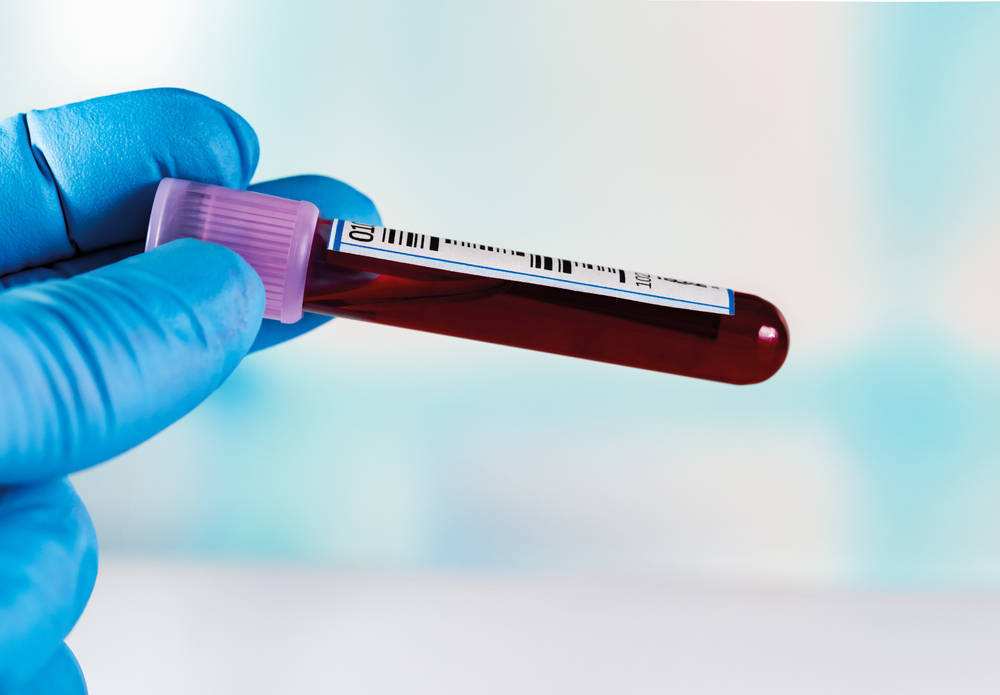Hyperproteinemia: Definition, Causes, Symptoms, and Treatment


Related products
Hyperproteinemia, or elevated blood protein levels, is a laboratory finding that can indicate various underlying health conditions. While not a disease itself, it serves as a crucial marker for potential issues ranging from dehydration to serious illnesses like multiple myeloma. This comprehensive guide delves into the causes, symptoms, diagnosis, and treatment of hyperproteinemia, providing valuable insights for those seeking to understand and manage this condition.

What is Hyperproteinemia and Why is it Important to Understand?
Hyperproteinemia refers to an abnormally high concentration of protein in the blood. The two primary proteins in the bloodstream are albumin and globulin. Albumin maintains oncotic pressure and transports hormones, vitamins, and drugs, while globulins play a vital role in immune system function. An imbalance or elevation in these proteins can disrupt bodily functions and signal underlying health issues.
Understanding hyperproteinemia is crucial because it often points to conditions that may not yet present noticeable symptoms. For instance, chronic infections, inflammatory diseases, or certain cancers can cause elevated protein levels long before other signs emerge. Early detection through routine blood tests can lead to prompt diagnosis and treatment, potentially improving outcomes.
For those interested in monitoring their health proactively, Welzo offers a range of home blood tests. The Free Testosterone Blood Test is particularly useful for assessing hormone levels that can influence protein synthesis and overall health.
Common Causes of Hyperproteinemia: From Dehydration to Blood Cancers
Several factors can lead to hyperproteinemia, each with varying implications:
-
Dehydration: The most common and benign cause. Reduced fluid intake concentrates blood components, including proteins.
-
Chronic Inflammatory Conditions: Diseases like rheumatoid arthritis or lupus increase globulin production as part of the immune response.
-
Infections: Chronic infections such as hepatitis B, hepatitis C, or HIV can elevate protein levels due to ongoing immune activity.
-
Plasma Cell Disorders: Conditions like multiple myeloma or Waldenström macroglobulinemia involve abnormal protein production by plasma cells.
-
Liver or Kidney Disease: These organs regulate protein synthesis and excretion; dysfunction can lead to imbalances.
-
Monoclonal Gammopathy of Undetermined Significance (MGUS): A condition where an abnormal protein is present without other disease symptoms, but it can progress to more serious disorders.
Identifying the underlying cause is essential for effective treatment. For instance, if a liver condition is suspected, the Bilirubin Blood Test can assess liver function and help pinpoint the issue.
Recognizing the Symptoms: How Does Hyperproteinemia Present Itself?
Hyperproteinemia itself may not cause direct symptoms, but the underlying conditions leading to elevated protein levels often do. Common symptoms include:
-
Fatigue: A general sense of tiredness or lack of energy.
-
Weight Loss: Unintentional loss of weight over a short period.
-
Bone Pain: Particularly in the back or ribs, which can indicate multiple myeloma.
-
Frequent Infections: A compromised immune system can lead to recurrent infections.
-
Numbness or Tingling: Especially in the hands or feet, possibly due to nerve involvement.
-
Swelling: Particularly in the legs or ankles, which may suggest kidney issues.
If you experience these symptoms, it's important to consult a healthcare professional. Monitoring your health through regular testing can aid in early detection. The Advanced Thyroid Function Blood Test can help assess thyroid-related causes of fatigue and other symptoms. We offer a PLAC (PL-PLA2) Blood test, click here to learn more.
The Role of Blood Proteins: Why Are They So Important?
Proteins in the blood serve numerous critical functions:
-
Transport: Carrying hormones, vitamins, and other essential substances throughout the body.
-
Immune Defense: Antibodies are proteins that help fight infections.
-
Clotting: Certain proteins are essential for blood clot formation.
-
Fluid Balance: Proteins help maintain the balance of fluids between blood vessels and body tissues.
-
Enzymatic Functions: Many enzymes are proteins that facilitate biochemical reactions.
An imbalance in these proteins can disrupt these functions, leading to various health issues. For example, low albumin levels can cause edema, while abnormal globulin levels can indicate immune disorders.
To assess your protein levels and overall health, consider comprehensive testing. The AMH Blood Test is useful for evaluating reproductive health, which can be influenced by protein levels.
How is Hyperproteinemia Diagnosed? The Tests You Might Need

Diagnosis of hyperproteinemia typically involves several steps:
-
Total Protein Test: Measures the overall level of protein in the blood.
-
Albumin and Globulin Tests: Determine the specific levels of these major proteins.
-
Serum Protein Electrophoresis (SPEP): Identifies specific protein abnormalities, useful in diagnosing multiple myeloma or MGUS.
-
Immunofixation Electrophoresis (IFE): Further characterizes abnormal proteins found in SPEP.
-
Urinalysis: Detects protein in the urine, which can indicate kidney issues.
-
Additional Tests: Depending on suspected underlying conditions, tests like liver function panels or imaging studies may be ordered.
Regular monitoring is essential, especially if you're at risk for conditions that affect protein levels. The Cholesterol Blood Test can provide insights into cardiovascular health, which is often linked to protein metabolism.
Effective Treatment Options: How to Manage and Lower High Blood Protein Levels
Treatment for hyperproteinemia focuses on addressing the underlying cause:
-
Dehydration: Increasing fluid intake can normalize protein levels.
-
Infections: Appropriate antimicrobial therapy can resolve the infection and reduce protein levels.
-
Inflammatory Diseases: Medications like corticosteroids or immunosuppressants can control inflammation.
-
Plasma Cell Disorders: Chemotherapy, targeted therapy, or stem cell transplantation may be necessary.
-
Liver or Kidney Disease: Managing the specific organ dysfunction through medication, lifestyle changes, or dialysis.
Lifestyle modifications, such as a balanced diet and regular exercise, can also support overall health and protein balance. Monitoring stress levels is important, as stress can impact protein metabolism. The Cortisol Blood Test can help assess stress-related hormonal imbalances.
When to See a Doctor: Don’t Ignore the Warning Signs
It's crucial to consult a healthcare provider if you experience:
-
Persistent Fatigue: Especially if it's unrelieved by rest.
-
Unexplained Weight Loss: Losing weight without changes in diet or exercise.
-
Bone Pain: Particularly if it's persistent or worsening.
-
Frequent Infections: More than usual or infections that are hard to clear.
-
Swelling: Especially in the legs or around the eyes.
Early intervention can lead to better outcomes. Regular health check-ups and blood tests are key components of preventive care. For a comprehensive assessment, the CRP Blood Test can detect inflammation, aiding in the diagnosis of various conditions.
Living with Hyperproteinemia: Long-Term Outlook and Health Tips
Managing hyperproteinemia involves:
-
Regular Monitoring: Keeping track of protein levels and overall health.
-
Treatment Adherence: Following prescribed therapies for underlying conditions.
-
Healthy Lifestyle: Maintaining a balanced diet, regular exercise, and adequate hydration.
-
Stress Management: Reducing stress through relaxation techniques, as stress can impact protein metabolism.
-
Routine Check-Ups: Regular visits to your healthcare provider for ongoing assessment.
Understanding and managing hyperproteinemia is a collaborative effort between you and your healthcare team. Utilizing available resources and tests can empower you to take control of your health. For a broad range of health assessments, explore Welzo's All Health Tests Collection, offering various options to monitor and maintain your well-being.
Read More: How To Check Your Liver Function?






























 Rated Excellent by 26,523+ Reviews
Rated Excellent by 26,523+ Reviews